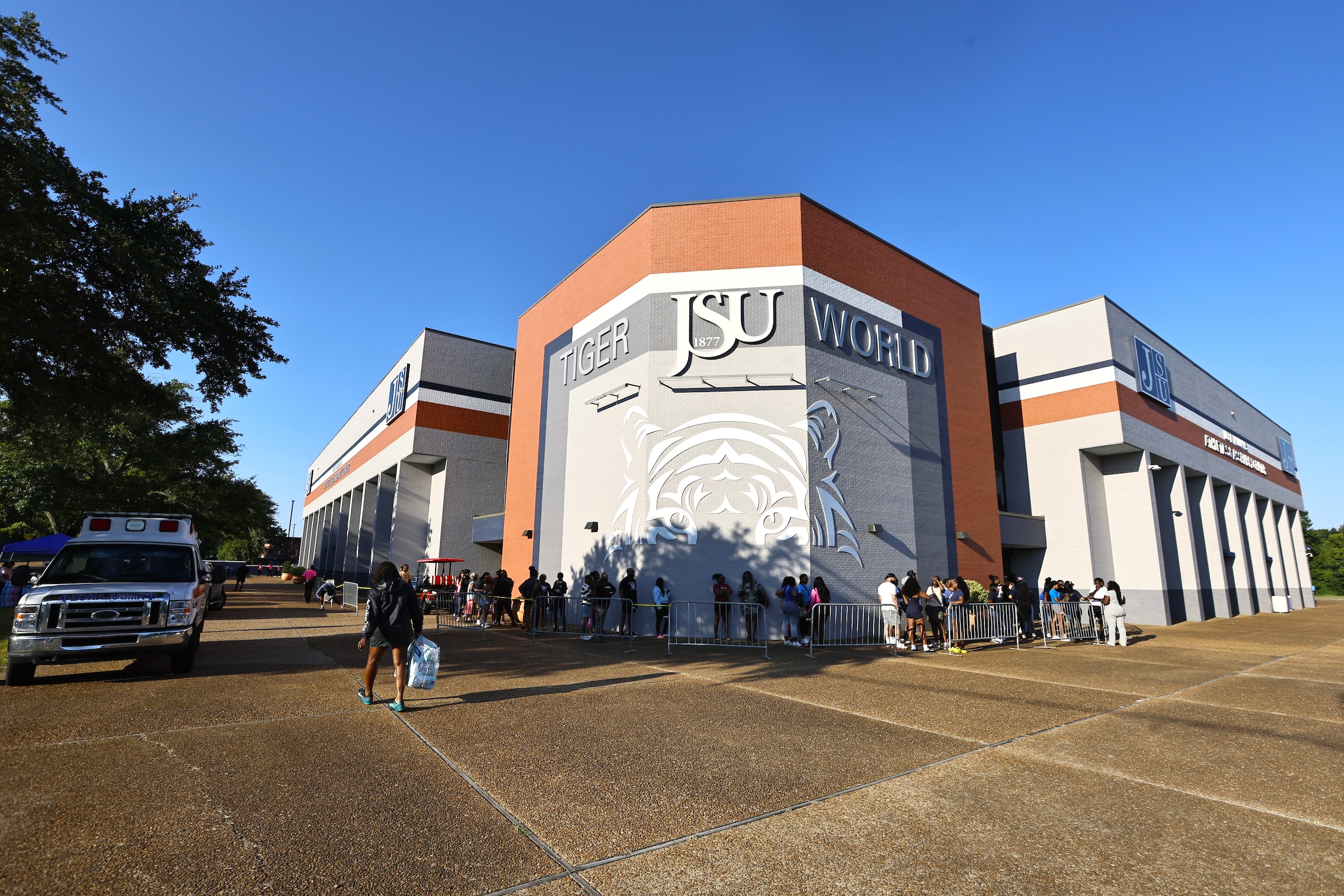The keynote speaker for Jackson State University’s annual Dr. Martin Luther King Jr. Convocation urged listeners to “embed in their DNA” three words etched on the U.S. naval ship that bears her father’s name: courage, integrity and perseverance.
The words, said Reena Evers-Everette, appropriately describe her father, Medgar Evers, the first NAACP state field secretary in Mississippi. Evers was gunned down by a sniper in 1963 because of his fight for freedom and equality.
In the years following his slaying, there have been numerous honors added to Evers’ legacy, including the christening of the USNS Medgar Evers in 2011.
In an emotional address, Evers-Everette spoke of personal moments she shared with her father, and described vivid memories of living under constant threats from those determined to keep a segregated society alive in America.
The efforts of Evers, King and countless others helped tear down a system that treated black people as second-class citizens, Evers-Everette said.
“As the children of the Civil Rights Movement, we all understand how important it is to keep the dreams of Dr. King, of my father, of Malcolm X and so many others, alive and forward,” she told the crowd Thursday at the Rose Embly McCoy Auditorium.
Evers-Everette is the executive director of the Medgar and Myrlie Evers Institute. The institute was established to fulfill the couple’s civil rights vision through education and civic engagement. It was relocated from Oregon to Mississippi in 2012.
JSU Interim Provost Dr. James Renick; Dr. Robert Luckett, director of JSU’s Margaret Walker Center, SGA President Brian Wilks and Miss JSU Sarah Brown were among those who joined Evers-Everette on stage in the auditorium.
Evers-Everette was an 8-year-old when her father was murdered. Before that fateful night, the family was terrorized with threatening phone calls, bomb threats and an actual firebombing at their home.
She said her father once told an interviewer that if he died, it was for a good cause because he was “fighting for America.”
Evers-Everette said King’s numerous contributions to the fight against inequality are important and undeniable. She referenced the organization of the March on Washington and the inspirational letters written by King, specifically his 1963 Letter from Birmingham Jail.
“Everyone can be great because everyone can serve. That’s why we’re here — to honor the servants,” she said.
The convocation was followed by the 18th annual For My People Awards luncheon. The Margaret Walker Center honored Evers-Everette and the B.B. King Museum and Delta Interpretative Center for their contributions to the public preservation of African-American history and culture.









Acknowledged Date: Fri, 18 Jan 2013 18:29:56 +0000 To: wileywhite@msn.com
JSU is great and always LEAD the way.